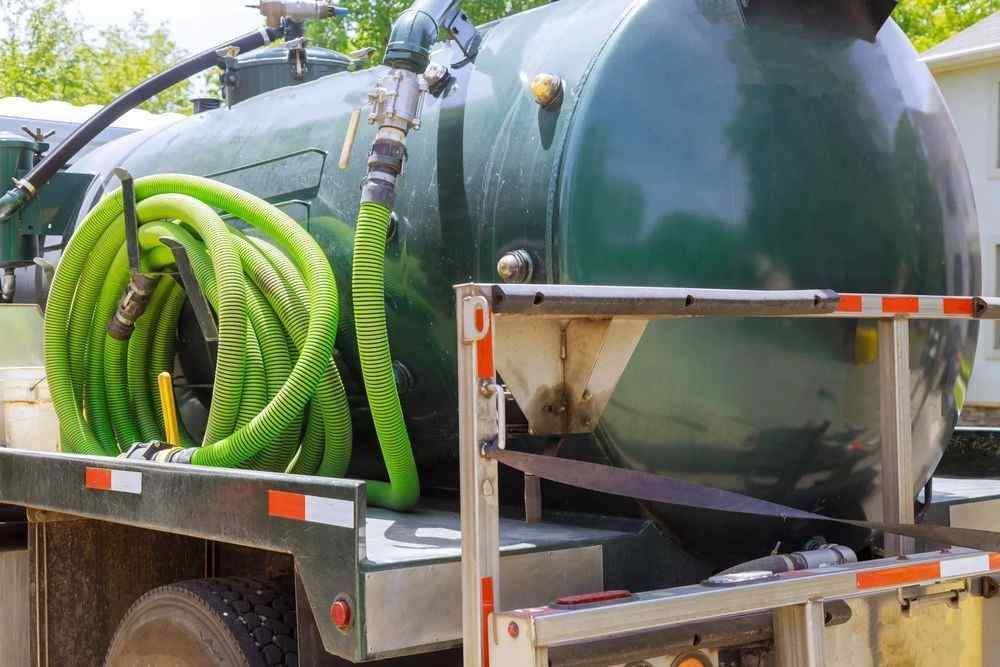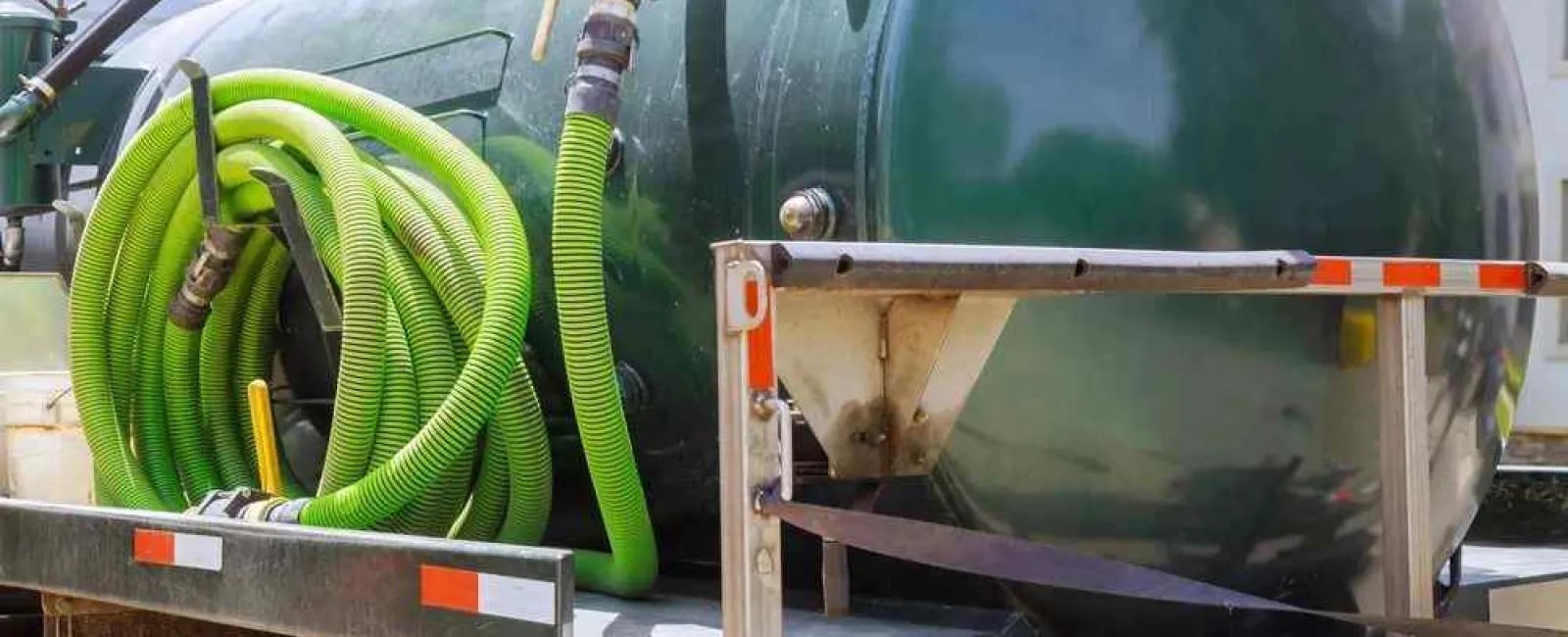Maintaining a healthy septic system is crucial for the longevity and efficiency of your home's wastewater management. One of the most pressing questions for homeowners is, "How often should you pump your septic tank?" Understanding the nuances of septic tank cleaning frequency, recognizing warning signs, and adopting proactive maintenance habits are key to preventing costly repairs, protecting your property, and ensuring your system functions effectively for years to come.

Understanding Your Septic System: A Quick Overview
Before diving into pumping schedules, it's helpful to know that your septic system is a self-contained, underground wastewater treatment structure. It typically consists of a septic tank and a drainfield. The tank's job is to separate solid waste from liquid effluent, allowing solids to settle and decompose, while the liquid effluent flows to the drainfield for natural filtration into the soil.
How Often to Clean Your Septic Tank: Key Factors
While a general rule of thumb suggests septic tank pumping every 3 to 5 years, this is merely a starting point. The optimal frequency for your home depends on a combination of factors:
Tank Size and Household Size: A smaller tank will fill up faster than a larger one. Similarly, more people in a household generate more wastewater and solids. For example, a 1,000-gallon tank serving 1-2 people might comfortably go 3-5 years, but the same tank with a household of 5-6 people could require pumping every 1-2 years. Many septic professionals use charts that cross-reference tank size with the number of occupants to estimate pumping frequency.
Wastewater Generation: It's not just the number of people, but their water usage habits. Households with high water consumption—from frequent laundry loads, long showers, or leaky fixtures—will put more strain on the septic system, potentially requiring more frequent pumping.
Garbage Disposal Use: Using a garbage disposal significantly increases the amount of solid waste entering your septic tank. These food solids don't break down as easily as human waste. If you frequently use a garbage disposal, expect to pump your tank more often, potentially reducing the interval by up to 50% or even requiring annual pumping in some cases.
Volume and Type of Solids: The composition of your wastewater greatly affects how quickly your tank fills. Flushing items that don't readily decompose (see "Proper Waste Disposal" below) or pouring grease and food scraps down the drain will accelerate sludge and scum buildup.
Recognizing the Telltale Signs: When Your Septic Tank Needs Pumping
Being vigilant for early warning signs can save you from severe system backups and expensive repairs. Here are key indicators that it's time for septic tank cleaning:
Water Pooling in the Drain Field: If you notice standing water or perpetually damp spots near your drainfield, it could indicate your septic tank is overflowing or the drainfield is failing to absorb effluent properly. This often happens when the tank is too full, and solids clog the system.
Slow Drains Throughout the House: Are sinks, bathtubs, or toilets draining sluggishly across your entire home? This can be a sign your septic tank is nearing capacity, leaving less room for new wastewater to enter and flow out.
Bad Odors: Unpleasant odors, often resembling rotten eggs or sewage, emanating from around your septic tank, drainfield, or even from drains within your home, are a clear signal that your tank may be full and gases are not escaping properly.
Sewage Backups in the Home: This is the most urgent and unpleasant sign. Sewage backing up into your home, typically starting in lower-level drains, indicates your septic tank is full and can no longer process wastewater. This poses serious health risks and requires immediate professional attention.
Lush Green Grass Over the Drainfield: While a healthy lawn is nice, an unusually vibrant, green patch of grass specifically over your drainfield, especially during dry periods, can suggest that excess liquid and nutrients from a failing septic system are over-fertilizing the area.
If you observe any of these symptoms, contact a septic professional immediately. Delaying can lead to more severe issues, including complete system failure.
The Septic Tank Pumping and Inspection Process: What to Expect
Septic tank pumping is more than just removing waste; it's a vital maintenance check-up. Here's what a professional service typically involves:
Locating and Accessing the Tank: The technician will locate your septic tank and uncover the access manhole(s) or risers.
Pumping: A large hose is inserted into the tank, and a vacuum truck removes all the contents - the liquids, scum layer (fats, oils, and grease that float), and sludge layer (solids that settle at the bottom).
Tank Cleaning (if necessary): Some solids may need to be broken up or scraped from the tank walls to ensure thorough removal.
Inspection: This is a crucial step. A reputable professional will:
Measure Layers (Optional but Informative): Sometimes, the technician might measure the scum and sludge layers before pumping to confirm the need and help establish a future pumping schedule. Pumping is generally recommended if the scum layer is within six inches of the outlet baffle or the sludge layer is within 12 inches.
Check for Damage: Visually inspect the tank's interior for cracks, leaks, corrosion, or other signs of damage.
Inspect Baffles/Tees: Examine the inlet and outlet baffles (or tees). These components are critical: the inlet baffle directs wastewater flow to minimize disturbance of settled solids, and the outlet baffle prevents scum and solids from escaping into the drainfield. Damaged or missing baffles can lead to premature drainfield failure. Some outlet baffles also contain an effluent filter, which should be cleaned regularly.
Securing the Tank: Once pumping and inspection are complete, the tank lids are securely replaced.
Protecting Your Septic System Between Pumping: Proactive Maintenance is Key
Regular pumping is essential, but year-round care can significantly extend your system's life and efficiency:
Water Conservation: The less water your system processes, the better. Fix leaky faucets and toilets promptly. Install high-efficiency fixtures (toilets, showerheads). Spread out laundry loads over several days rather than doing many in one day. Excessive water can overwhelm the tank and push solids into the drainfield.
Proper Waste Disposal - "Your Toilet is Not a Trash Can":
Only flush human waste and septic-safe toilet paper.
Never flush: "Flushable" wipes (they don't break down), paper towels, feminine hygiene products, dental floss, diapers, condoms, cotton swabs, cigarette butts, coffee grounds, or cat litter.
Never pour down drains: Fats, oils, grease (FOG), paints, solvents, pesticides, harsh chemical cleaners, or medications. These can clog pipes, kill beneficial bacteria in the tank needed for waste breakdown, or contaminate groundwater.
Drainfield Care:
Avoid compaction: Do not drive or park vehicles, or place heavy structures (like sheds or pools) over the drainfield.
Plant wisely: Do not plant trees or shrubs with aggressive root systems near the drainfield, as roots can damage the pipes. Grass is usually the best cover.
Manage surface water: Divert rainwater runoff from roofs, driveways, and patios away from the drainfield to prevent oversaturation.
Septic Tank Additives - Use with Caution: Most experts, including the U.S. Environmental Protection Agency (EPA), state that septic tank additives are generally not necessary for a properly functioning system and some can even be harmful. The naturally occurring bacteria in human waste are sufficient for breaking down solids. Some additives can re-suspend solids, causing them to flow into and clog the drainfield. Consult a trusted septic professional before using any additives.
Regular Inspections: Even between pumpings, consider having your system inspected by a professional every 1 to 3 years. They can identify potential issues before they become major problems.
Consequences of Neglecting Septic Maintenance: A Costly Mistake
Ignoring your septic system's maintenance needs can lead to dire and expensive consequences:
System Failure: When sludge and scum accumulate excessively, they can clog the outlet baffle, allowing solids to escape into and overwhelm the drainfield. This clogs the perforated pipes and the surrounding soil, preventing wastewater from being properly absorbed and treated.
Sewage Backups: As mentioned, this is a direct result of a full or failing system, posing health hazards from exposure to raw sewage.
Environmental Contamination: Failing septic systems can release untreated wastewater into the ground, potentially contaminating groundwater, wells, streams, and lakes with harmful bacteria and nitrates.
Extremely Costly Repairs/Replacement: The cost of regular pumping pales in comparison to the expense of repairing or replacing a failed drainfield, which can range from $5,000 to $20,000 or even more.
Understanding Sludge, Scum, and Baffles
Sludge: Heavier organic and inorganic solids that settle at the bottom of the tank. Bacteria partially decompose these solids.
Scum: Lighter materials like grease, fats, oils, and soaps that float to the top.
Effluent: The relatively clear liquid layer between the sludge and scum, which flows out to the drainfield.
Baffles (or Sanitary Tees): Located at the tank's inlet and outlet. The inlet baffle directs incoming wastewater downwards to prevent disturbing the scum layer. The outlet baffle (or tee) prevents floating scum and settled sludge from exiting the tank and clogging the drainfield. An effluent filter, if present at the outlet, provides an additional barrier against solids.
Tailored Maintenance for a Healthy System
Given the many variables—from tank size and household habits to the age of your system and local soil conditions—a generic 3-5 year pumping rule is just an initial guideline. Some local health departments may also have specific regulations regarding septic system inspection or pumping frequency. It's always wise to be aware of any local requirements and to keep detailed records of all inspections, pumping, and maintenance performed on your system.
Experts like Scorpion Septic recommend establishing a regular maintenance schedule based on your household's specific needs. Consulting with a professional septic tank cleaning service can provide personalized advice, ensuring your system remains in top condition year-round and helping you avoid costly emergencies.
Not sure how often you should pump your septic tank? Contact Scorpion Septic today to schedule an inspection or septic tank cleaning. Our team of experts is ready to help you maintain a healthy, efficient septic system, ensuring it supports your home reliably for years to come. Remember, diligent, regular maintenance is the key to a long-lasting and trouble-free septic system.

